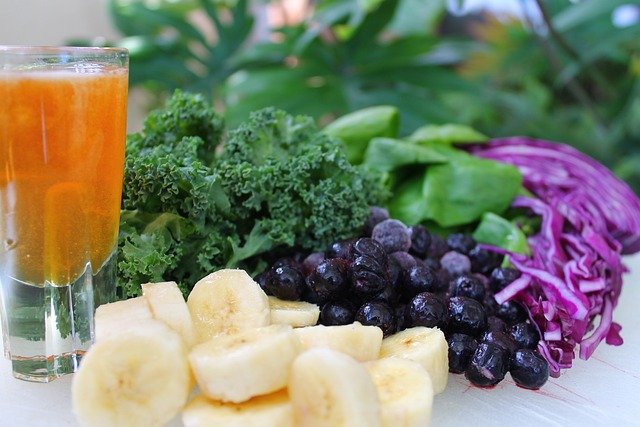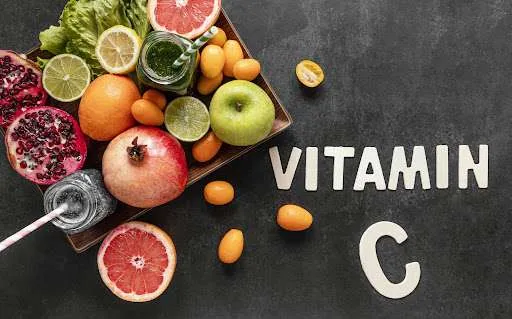Clear up confusion and avoid traps that can sabotage your progress.
From viral diet trends to one-size-fits-all meal plans, it’s easy to get lost in the noise. While some tips can be helpful, others may actually hinder your progress—or worse, harm your health. If you’re serious about getting healthier and reaching your weight goals, it’s time to separate fact from fiction. In this article, we’ll debunk common myths about nutrition for weight loss, so you can build a strategy that’s smart, sustainable, and science-backed.
Myth 1: Carbs Are the Enemy
One of the most widespread misconceptions is that all carbohydrates are bad. While it’s true that refined carbs like white bread and sugary snacks can contribute to weight gain, not all carbs are created equal.
Whole grains, fruits, vegetables, and legumes are nutrient-dense, fiber-rich sources of complex carbohydrates that can actually support weight loss. Fiber keeps you full, stabilizes blood sugar levels, and aids digestion.
Truth: You don’t have to ditch carbs—just be mindful of the types you eat. A balanced approach to nutrition for weight loss includes healthy carbs in moderation.

Myth 2: You Must Skip Meals to Lose Weight
Skipping meals may seem like a fast-track to weight loss, but it often backfires. It slows your metabolism, increases cravings, and may lead to overeating later in the day. Breakfast, in particular, helps kickstart your metabolism and can prevent mindless snacking.
Truth: Eating regular, balanced meals throughout the day helps maintain energy levels and supports better food choices. In nutrition for weight loss, consistency often trumps extremes.
Myth 3: Fat Will Make You Fat
For decades, dietary fat was unfairly blamed for weight gain. But not all fats are the same. Trans fats and highly processed oils can be harmful, while healthy fats—like those found in avocados, nuts, seeds, and olive oil—are essential for hormone regulation and satiety.
Truth: Healthy fats are your friend. Including them in moderation helps you feel fuller for longer, reducing the chances of overeating. Fat is a vital part of balanced nutrition for weight loss.
Myth 4: You Have to Eat “Clean” 100% of the Time
Perfection is not sustainable. While whole foods should form the foundation of your diet, occasional indulgences won’t destroy your progress. In fact, allowing flexibility can make your approach more sustainable in the long run.
Truth: Successful nutrition for weight loss is about creating habits, not restrictions. A healthy lifestyle includes room for enjoyment and balance.
Myth 5: Detoxes and Cleanses Speed Up Weight Loss
Juice cleanses and detox teas are often marketed as miracle solutions, but they’re largely ineffective and sometimes dangerous. While they may lead to short-term water weight loss, they don’t promote long-term fat loss or build healthy habits.

Truth: Your liver and kidneys are already excellent detoxifiers. Instead of relying on gimmicks, focus on drinking plenty of water, eating fiber-rich foods, and nourishing your body. Real nutrition for weight loss doesn’t involve starving yourself.
Myth 6: All Calories Are Equal
While calorie control is important for weight loss, the quality of your calories matters just as much. 300 calories of leafy greens and lean protein is not nutritionally equivalent to 300 calories of chips or soda.
Nutrient-dense foods support metabolism, energy, and satiety, while empty calories often lead to overeating and nutrient deficiencies.
Truth: Calories count, but where those calories come from counts more. Smart nutrition for weight loss is about nutrient quality as much as calorie quantity.
Myth 7: You Can’t Eat After 8 PM
The belief that eating late at night leads to weight gain isn’t entirely accurate. What matters most is your overall calorie intake and expenditure across the day—not just the time of your last meal.
That said, late-night snacking often involves high-calorie, low-nutrition foods, which can sabotage your efforts.
Truth: If you’re hungry at night, a small, healthy snack is fine. Focus on your total daily intake. Timing can help, but it’s not the deciding factor in nutrition for weight loss.
Myth 8: Supplements Replace Real Food
While supplements can be helpful for specific deficiencies, they’re not a substitute for whole, real foods. Relying too heavily on protein powders, fat burners, or meal replacements can lead to an unbalanced diet and poor long-term outcomes.

Truth: Food first, always. Supplements should supplement a solid eating plan, not replace it. The core of nutrition for weight loss lies in real, nourishing meals.
Achieving your weight loss goals doesn’t require rigid diets or falling for quick fixes—it requires knowledge, balance, and patience. By breaking free from these common myths about nutrition for weight loss, you can avoid setbacks and adopt a healthier, more effective approach.



